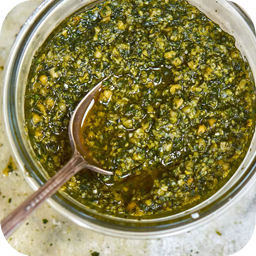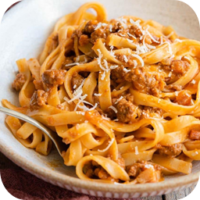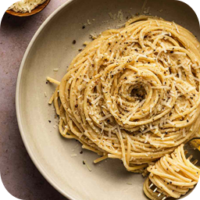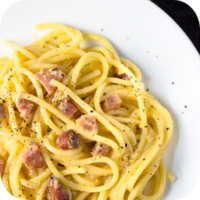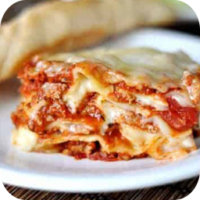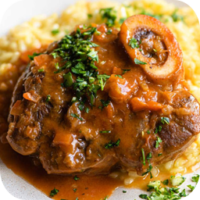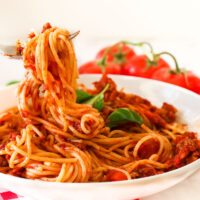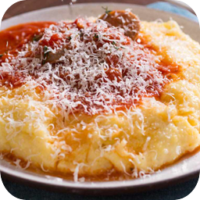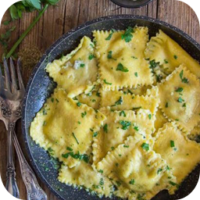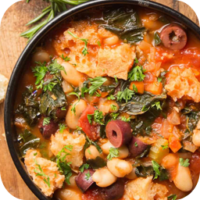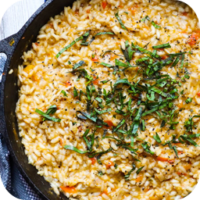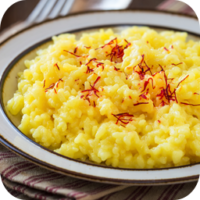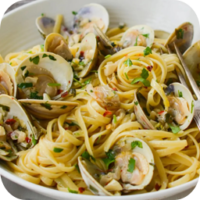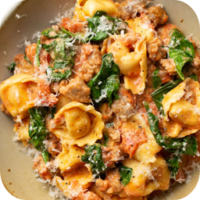Posted by theeatland
- Dec 28, 2024
- 72
- 0
Pesto is a classic Italian sauce originating from the region of Liguria, specifically from the city of Genoa. It is typically made from fresh basil, garlic, pine nuts, Parmesan cheese, Pecorino cheese, and extra virgin olive oil. The word “pesto” comes from the Italian verb “pestare,” meaning “to crush” or “to pound,” referring to the traditional method of preparing the sauce by grinding the ingredients together in a mortar and pestle.
Key Features of Pesto:
- Ingredients:
- Basil: The star ingredient in classic pesto, providing a fresh, herbal flavor.
- Garlic: Adds a savory, aromatic depth to the sauce.
- Pine Nuts: Provide a subtle nuttiness and creamy texture when blended.
- Parmesan Cheese: Adds a salty, umami flavor, and helps to thicken the sauce.
- Pecorino Cheese: A hard, tangy cheese made from sheep’s milk, which complements the Parmesan.
- Olive Oil: A high-quality extra virgin olive oil is essential for binding the sauce and giving it a smooth texture.
- Traditional Preparation:
- Mortar and Pestle: The traditional method for making pesto is by grinding the ingredients together in a mortar with a pestle. This process helps release the essential oils in the basil and pine nuts, creating a fragrant, flavorful paste.
- Blender or Food Processor: In modern kitchens, pesto is often made using a blender or food processor to save time, although the texture may be slightly different.
- Consistency:
- Pesto is a thick, paste-like sauce with a vibrant green color. It is typically used as a condiment or topping for pasta, but it can also be used in a variety of other dishes like sandwiches, pizzas, and salads.
- Types of Pesto:
- Pesto alla Genovese: The classic version from Genoa, made with basil, pine nuts, Parmesan, Pecorino, garlic, and olive oil.
- Pesto Rosso (Red Pesto): Made with sun-dried tomatoes, garlic, Parmesan, Pine nuts, and olive oil. It has a tangier and richer flavor compared to the traditional green pesto.
- Pesto alla Siciliana: A variation from Sicily that includes almonds instead of pine nuts, along with tomatoes and garlic for a slightly different taste.
- Pesto di Rucola: A variation made with arugula (rocket) instead of basil, giving it a peppery, spicier flavor.
- Pesto di Prezzemolo: A parsley-based pesto, often used as a garnish or topping for fish or chicken.
Common Uses:
- Pasta:
- Pesto is most famously paired with pasta, particularly trofie (a short, twisted pasta from Liguria), but it can also be served with spaghetti, penne, or any type of pasta.
- To serve, cooked pasta is tossed with a generous amount of pesto sauce, which coats the pasta and adds a burst of fresh, herbal flavor.
- Sandwiches and Wraps:
- Pesto can be spread on bread or used as a filling for panini, sandwiches, or wraps.
- It pairs especially well with mozzarella, tomatoes, or grilled vegetables.
- Pizza:
- Pesto can be used as a base sauce for pizza instead of traditional tomato sauce, or drizzled on top as a finishing touch.
- Dips and Dressings:
- Pesto can be served as a dip for bread, crackers, or vegetables.
- It can also be used as a salad dressing by mixing it with a bit of lemon juice or vinegar and extra olive oil.
- Meat and Fish:
- Pesto can be used as a marinade for chicken, fish, or grilled meats, imparting a fresh, aromatic flavor.
- Vegetables:
- Pesto is delicious when mixed with roasted or grilled vegetables, enhancing their flavors with its herbaceous depth.
Cultural Significance:
- Genoese Tradition: Pesto is deeply rooted in Liguria‘s culture, where basil is abundant, especially in the summer months. It has been a staple of the region for centuries.
- Iconic Italian Sauce: While pesto’s origins are in Liguria, it has become a popular sauce throughout Italy and internationally.
- Fresh and Simple: Pesto embodies the Italian culinary philosophy of using a few simple, high-quality ingredients to create a flavorful and versatile dish.
Serving Suggestions:
- Classic Pasta Dish: Toss fresh, hot pasta with pesto for a quick and delicious meal. Add extra Parmesan cheese and fresh basil as a garnish.
- Grilled Chicken: Serve grilled chicken with a dollop of pesto on top or alongside.
- Vegetable Medley: Roasted or grilled vegetables like zucchini, bell peppers, and eggplant pair wonderfully with pesto for a fresh side dish.
- Bread and Cheese: Use pesto as a spread for crostini or serve it with cheese and olives as part of an Italian antipasto platter.
Recommended Posts
- Dec 28, 2024
- 79 read
Arancini are traditional Italian rice balls that are typically stuffed with a...
Read Article- Dec 28, 2024
- 79 read
Bistecca Fiorentina is a classic Italian steak, originating from Tuscany, particularly the...
Read Article- Dec 28, 2024
- 84 read
Bolognese Sauce (known in Italy as Ragù alla Bolognese) is a rich,...
Read Article- Dec 28, 2024
- 79 read
Bottarga is a traditional Italian delicacy made from the roe (eggs) of...
Read Article- Dec 28, 2024
- 77 read
Cacio e Pepe is a traditional Italian pasta dish from Rome, known...
Read Article- Dec 28, 2024
- 78 read
It seems like you might be referring to Carbonara, a famous Italian...
Read Article- Dec 28, 2024
- 81 read
Focaccia is a traditional Italian flatbread that is similar in texture to...
Read Article- Dec 28, 2024
- 85 read
Gelato is a traditional Italian ice cream that is known for its...
Read Article- Dec 28, 2024
- 77 read
Gnocchi is a type of traditional Italian dumpling made from potatoes, flour,...
Read Article- Dec 28, 2024
- 82 read
Lasagna is a classic Italian dish that consists of layers of wide,...
Read Article- Dec 28, 2024
- 80 read
Neapolitan Pizza (or Pizza Napoletana) is a traditional Italian pizza that originated...
Read Article- Dec 28, 2024
- 67 read
Ossobuco is a traditional Italian dish originating from the region of Lombardy,...
Read Article- Dec 28, 2024
- 73 read
Pasta is a fundamental and iconic component of Italian cuisine, with its...
Read Article- Dec 28, 2024
- 67 read
Polenta is a traditional Italian dish made from cornmeal, which is a...
Read Article- Dec 28, 2024
- 76 read
Ravioli is a type of Italian pasta that consists of small, square...
Read Article- Dec 28, 2024
- 77 read
Ribollita is a traditional Italian soup that originates from the Tuscany region....
Read Article- Dec 28, 2024
- 66 read
Risotto is a traditional Italian dish made from short-grain rice, most commonly...
Read Article- Dec 28, 2024
- 78 read
Risotto alla Milanese is a classic Italian dish that originates from the...
Read Article- Dec 28, 2024
- 73 read
Spaghetti with Clams (Italian: Spaghetti alle Vongole) is a classic Italian pasta...
Read Article- Dec 28, 2024
- 68 read
Tiramisu is a classic and beloved Italian dessert, known for its rich...
Read Article- Dec 28, 2024
- 73 read
Tortellini is a traditional Italian pasta that originates from the Emilia-Romagna region...
Read Article
